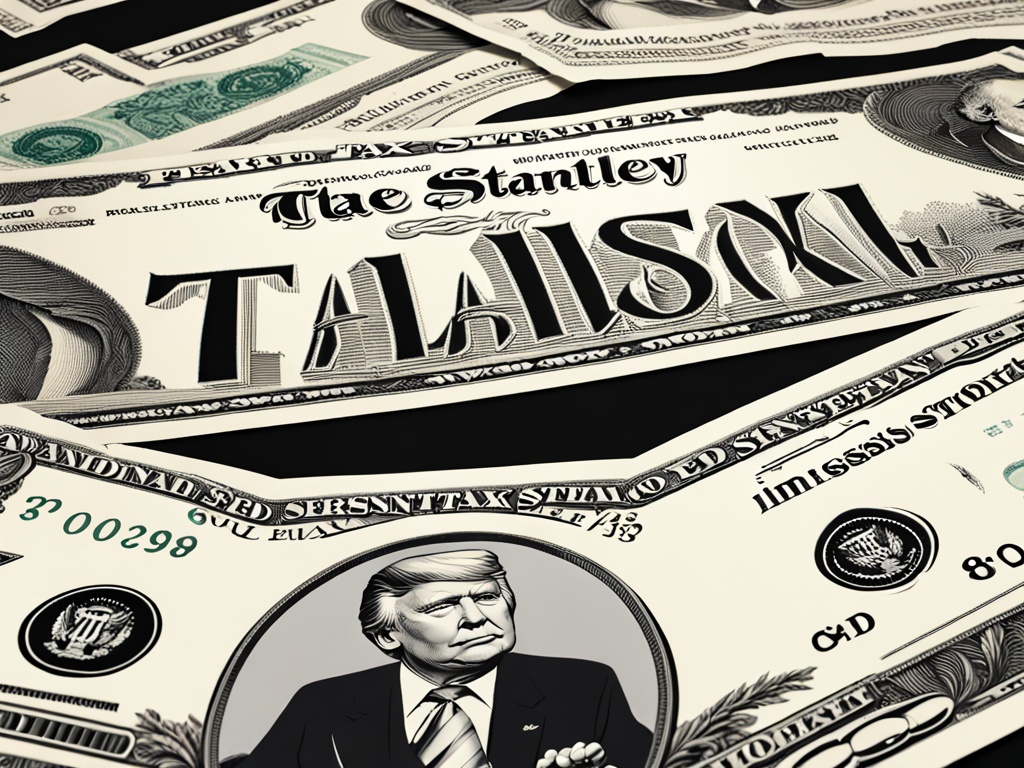Analyzing Morgan Stanley’s Perspective on Presidential Tax Policies 🏛️📊
Michael Zezas, a managing director at Morgan Stanley and the head of their US public policy research, dives deep into the tax strategies proposed by the candidates in the upcoming presidential election. With the election approaching, comprehensive analysis from experts like Zezas could shape investor sentiment profoundly.
The State of the Markets and Tax Policy Impact 📰💼
As election day draws near, experts are scrutinizing candidates’ tax proposals closely. Morgan Stanley’s analysis suggests that, regardless of the election’s outcome, the firm anticipates an increase in the deficit by 2026. Investors seem to lean towards the possibility of larger deficits, especially in scenarios where the Republican party dominates. According to their outlook, while fiscal expansion may not resurrect pre-funded bonds, it could lead to adverse effects in municipal bond returns.
The conversations around municipal bonds highlight the ongoing complexities in the current financial environment. The results of the election will undoubtedly influence these municipal bonds and broader market dynamics.
Tax Plans Overview 📋💬
When assessing the candidates’ tax proposals, there is a notable contrast between the Republican and Democratic approaches. Republicans primarily aim to minimize taxes. This initiative focuses on maintaining the existing tax cuts from the Tax Cuts and Jobs Act (TCJA), which are set to expire. They propose extending these cuts, but the feasibility and scale of such an extension could pose significant challenges.
- Republican Strategy:
- Extending expiring tax cuts from the TCJA.
- Maintaining corporate tax rates unchanged, but various deductibility provisions may not be extended.
- Proposed deficit expansion could be substantial, reaching several trillion over a decade under certain scenarios.
Comparing Democratic Proposals 🗳️💡
In contrast, the Democrats’ strategy incorporates increased revenue as part of their fiscal agenda. They are looking to extend around half of the expiring provisions while also introducing new spending measures such as an augmented child tax credit. Moreover, they plan to raise the corporate tax rate slightly, leading to a more modest increase in the deficit compared to the Republican plan.
- Democrat Initiatives:
- Extension of certain tax provisions, rather than a blanket extension.
- Propose new spending, leading to a projected deficit increase of approximately $700 billion over ten years.
Preparing for Election Day 🚦🔍
As election day approaches, Morgan Stanley focuses on developing situational awareness regarding the evolving political landscape. They emphasize the importance of closely monitoring poll results, particularly in key states and counties, as the votes are counted. Given the unpredictable nature of elections, they remind us to be prepared for market fluctuations stemming from the election outcomes.
The approach involves tracking the potential implications of the election results on different asset classes. Investors need to remain vigilant, as instability can create opportunities and challenges alike.
Market Reactions and Investment Strategies 📈⚖️
As markets react to polling data and emerging trends, certain sectors and asset classes could feel immediate impacts based on the election results. Recent market movements indicate a nuanced view of potential Republican successes, prompting fluctuations in stock performance and interest rates.
- Key Market Indicators to Watch:
- Shift in Treasury yields, potentially steepening under Republican gains.
- Currency movements, particularly in relations to tariffs and international trade agreements.
- Market sectors sensitive to tariff changes, such as clean technology, could react differently based on the election’s outcome.
Hot Take: Implications for Investors in 2024 🚀📅
This year presents pivotal moments for investors as they navigate the outcome of the election and its long-term ramifications on tax policies. The forthcoming decisions will have a lasting influence on fiscal strategy and potential investment pathways. The careful analysis from firms like Morgan Stanley illustrates the intertwining of tax policies and market response, emphasizing the importance of strategic adjustments in an evolving environment.
As we inch closer to election day, staying updated on the implications of these tax proposals will be crucial for understanding future market dynamics.





 By
By
 By
By
 By
By
 By
By

 By
By